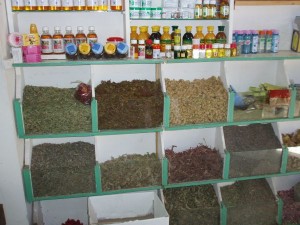Farmers should have to follow good agricultural practices and good handling practices for food safety of their products. Good agricultural practices include pre-harvest practices in the field while good handling practices include post-harvest practices such as packing and shipping. Several institutes offer Food Safe Training for food safety on the Farm.
This Food Safe Training is available to vegetable and fruit producers, feed producers, milk processors, shell egg producers and small dairies. The training provides general awareness about food safety and preventive controls.
Issues covered under Food Safe Training for food safety on the farm include:
- Information about the Food Law and Food Safety Modernization Act – It is necessary to know about various provisions of the Food Law. The Food Safety Modernization Act, also known as the Food Safety Act, regulates growth, harvesting and processing of food.
- Knowledge about illness-causing germs – Knowledge about germs that cause illness to crops at the farm is very important. This will help to prevent spoiling of food and spread of food borne diseases.
- Following good manufacturing practices – Good manufacturing practices improve the quality of food and prevent it from getting contaminated.
- Taking action for preventive control – Timely action for preventive control can save the crops, plants, trees, meat and other products from getting damaged.
- Awareness about the 7 food safety principles of HACCP (Hazard Analysis and Critical Control Point) system – This is a system for prevention of hazards that cause food borne diseases.
Food Safe Training teaches in detail about the following 7 food safety principles of HACCP system:
A) Conducting hazard analysis and identifying potential hazards likely to cause damage, so that a control action plan can be worked out,
B) Identifying critical control points to reduce or eliminate food safety hazards.
C) Establishing minimum and maximum critical limits for biological, chemical and physical factors to reduce or eliminate food safety hazards,
D) Monitoring critical control point,
E) Taking corrective action for preventing hazardous food material from entering the food chain,
F) Keeping proper records, and
G) Supporting the HACCP program with good manufacturing practices to make sure that food safety and quality are maintained.
- Information about the ‘Alert’ program of FDA – FDA’s ‘Alert’ is a ‘Food Defense Awareness’ program that identifies key points for food safety.
Food Safety on the Farm - How to maintain proper sanitation – Sanitation is a very important farm practice to prevent diseases and pests from causing damage.
- Following good agricultural practices – Good agricultural practices are necessary for food safety. These include clean water, properly treated biosolids, good field sanitation, first-class packing facilities, proper transportation of food products, maintaining worker health, worker hygiene and sanitation facilities. Proper documentation and trace back are also necessary.
All the above issues are very important for food safety on the farm. Food Safe Training will ensure the implementation of the best practices to prevent crop contamination during the entire process of planting, growth, harvesting and post-harvesting in the farm.

